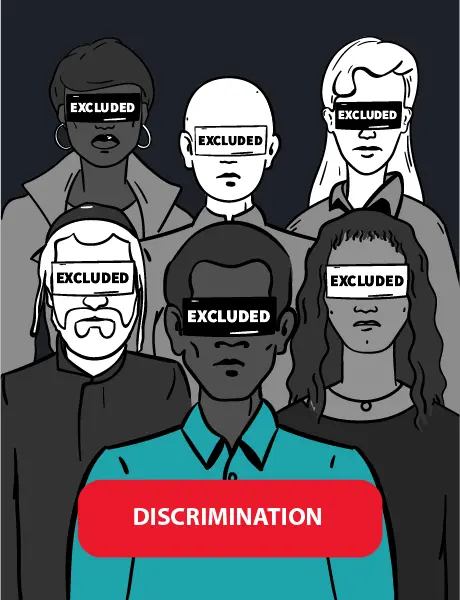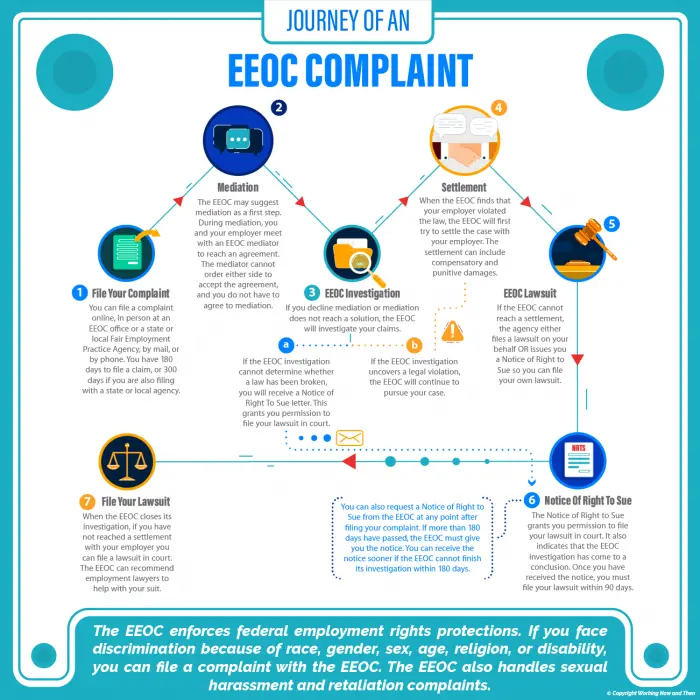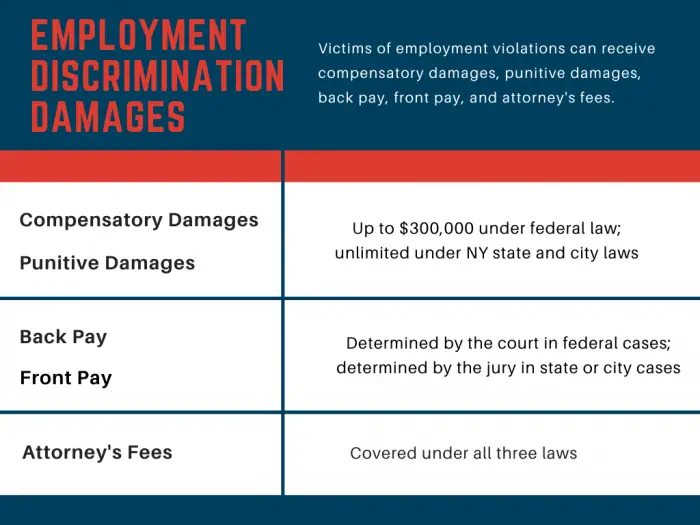How To File A Discrimination Claim in New York
Have you experienced workplace discrimination in New York? If your employer violates your rights, you may qualify for back pay and damages.
First, you have to file a discrimination claim. This helps victims of discrimination recover money from their employers. The process may seem complicated, but a New York discrimination lawyer can help.
Filing a Claim for Discrimination
Anyone can file a discrimination claim. The first step in filing a claim for discrimination is choosing where to file.
You can file a complaint with the U.S. Equal Employment Opportunity Commission (EEOC), which handles violations of federal law. The New York State Division of Human Rights handles NYSHRL violations, and the New York City Commission on Human Rights is responsible for CHRL violations.
If your claim falls under multiple laws, you can use the agencies’ “work-sharing agreement.” This means they cooperate with each other to process your claims.
There is no need to file a separate claim with each agency. You simply need to indicate that you want your claim “cross-filed” with the other agencies.
You can also contact a New York discrimination lawyer for help.
U.S. Equal Employment Opportunity Commission (EEOC)
The EEOC handles violations of federal law for employers with more than 15 employees. If you believe your employer has discriminated against you, you can contact the EEOC. Counselors at the EEOC can discuss your legal rights, whether you choose to file a claim or not.
If you decide to file with the EEOC, you have only 180 days from the date of the discriminatory activity. However, the deadline extends to 300 days if you cross-file with a state or local agency.
The EEOC’s website offers instructions on how to file a complaint. You can also visit our page on how to file an EEOC complaint.
You must file your discrimination claim with the EEOC before you can file a complaint in federal court. This is called exhausting your remedies.
EEOC Mediation
Once you file a charge, the EEOC may ask you to settle your dispute through mediation.
Mediation is an informal and confidential way to resolve the situation with the help of a neutral person. The mediator is not a judge and has no power to order either side to do anything.
However, you do not have to agree to mediation.
EEOC Investigation
If mediation is unsuccessful, or if the case is not sent to mediation, the EEOC will begin an investigation into your case.
- The EEOC will give you a “Notice of Right to Sue” letter if the investigation does not find that your employer violated the law. This letter gives you permission to file a lawsuit in a court of law.
- If the investigation does find that your employer violated the law, the EEOC may try to settle with your employer.
- The EEOC’s legal team will determine whether the EEOC should file a lawsuit if a settlement cannot be reached. If the EEOC decides not to file a lawsuit, it will issue you a “Notice of Right to Sue,” so you can bring your own lawsuit.
- An EEOC investigation can be a lengthy process. If more than 180 days have passed since you filed your charge, you can ask the EEOC for a “Notice of Right to Sue.” The EEOC must provide the notice if they cannot finish the investigation within 180 days. Once the EEOC gives you a “Notice of Right to Sue,” the EEOC will close your case and take no further action.
- Under some circumstances, you can ask for a “Notice of Right to Sue” before the EEOC has finished investigating your claim, even before the 180 days have passed.
- Once you receive a “Notice of Right to Sue” under any of those scenarios, you must file your lawsuit within 90 days.
Learn more about how to file an EEOC complaint.
New York State Division of Human Rights
If your employer has more than 4 employees, you can file a claim with the New York State Division of Human Rights. However, if you chose to file with this agency, you give up your right to file those claims in court.
You have one year after the discriminatory activity to file your claim with the agency. However, if your claim also includes Title VII claims, you only have 240 days.
The agency will investigate your claim. They may find evidence that unlawful discrimination, harassment, or retaliation has occurred. In this case, the agency will call a public hearing before an administrative law judge. The administrative law judge has the power to make a decision regarding your claim. The judge can also enforce that decision.
Unlike with Title VII claims, you do not need to file a claim with the New York State Division of Human Rights before taking a NYSHRL violation to court. If you choose not to file with the agency, you have three years from the date of the discriminatory conduct to file your complaint in state court.
New York City Commission on Human Rights
If your NYC employer has more than 4 employees, you can file a claim with the New York City Commission on Human Rights. If you file a claim through the NYC Commission on Human Rights, you give up your right to file the same claim in court.
The statute of limitations is the same as the NY Division of Human Rights. You have one year after the discriminatory activity to file your claim, or 240 days if your claim also includes Title VII claims.
The commission will conduct an investigation to look for evidence of discrimination, harassment, retaliation, or wrongful termination. If the investigation uncovers employment violations, an administrative judge will hold a hearing and make a ruling on your claim.
You do not need to file with the NYC Commission on Human Rights before filing a lawsuit. If you choose not to file a complaint with the commission, you have three years to file a lawsuit.
Discrimination Claim Damages
Victims of workplace discrimination can recover damages, back pay, and fines from their employer. A New York discrimination lawyer can help pursue your legal remedies.
- Back Pay: The courts can award back pay equal to what you would have earned without the discrimination. This includes wages, bonuses, benefits, and more.
- Reinstatement: If you were fired or denied a promotion, the courts can order your employer to give you back your job or give you a promotion.
- Front Pay: The courts can award front pay to compensate for lost wages and benefits due to discrimination. The amount depends on the court’s determination of how long it will take for you to return to the same level of pay you had before the discrimination.
- Compensatory Damages: These damages “compensate” you for any out-of-pocket expenses caused by the discrimination. This includes the cost of therapy, lost wages, or the cost of searching for a new job. It can also include emotional pain and suffering.
- Punitive Damages: These damages punish the employer for their role in the discrimination. Under New York City law, employers who show negligence, recklessness, or a conscious disregard of your rights may have to pay punitive damages.
- Liquidated Damages: Under certain laws, victims of discrimination also qualify for liquidated damages equal to the amount of back pay owed.
- Attorneys’ Fees and Costs: If you win, your employer must pay your attorney for their work on your case. This includes expert witness fees and court costs.
Types of Workplace Discrimination
Employment laws protect workers from discrimination on the basis of race, sex, religion, age, disability status, and more.
Learn more about your rights under different discrimination laws:
- Race Discrimination
- Gender Discrimination
- Religious Discrimination
- Age Discrimination
- Disability Discrimination
- Pregnancy Discrimination
- Equal Pay
Navigating the claims process can be challenging, and many people feel overwhelmed by the process. New York discrimination lawyer Charles Joseph brings over two decades of experience in employment law.
Reach out today for a free, confidential consultation.



